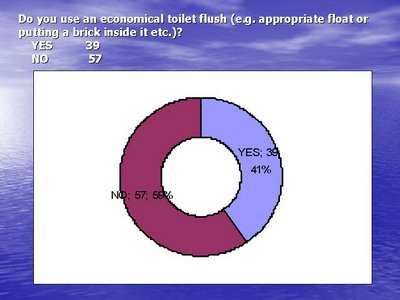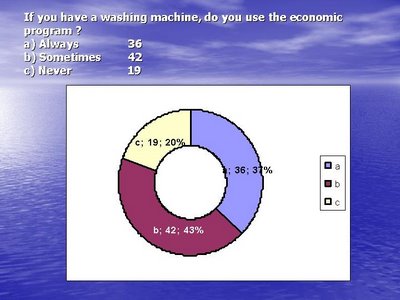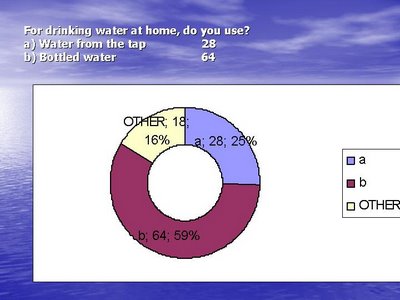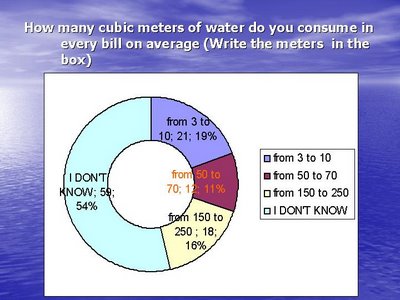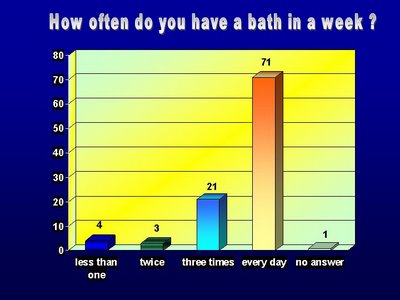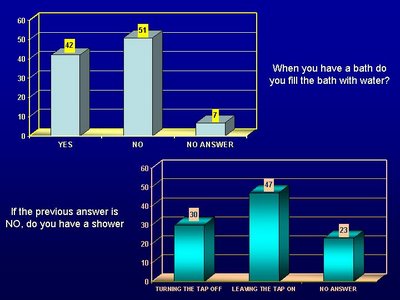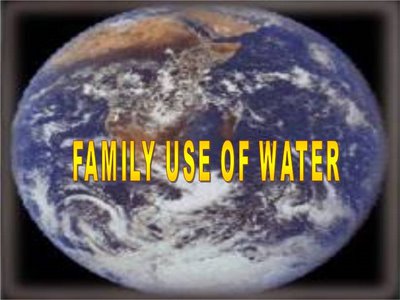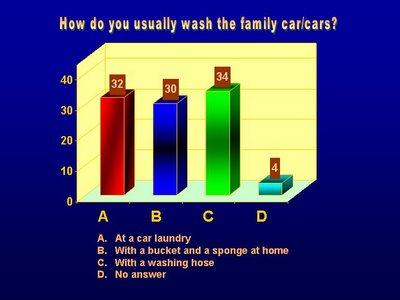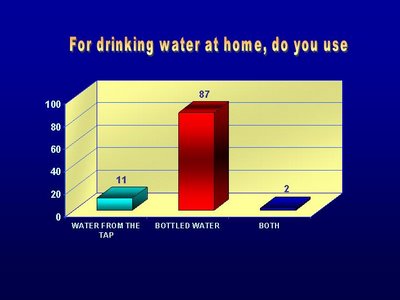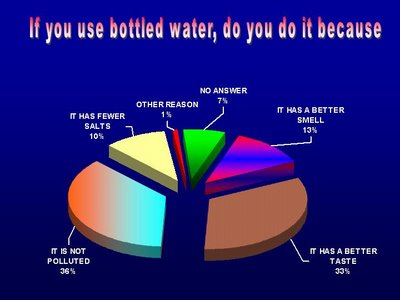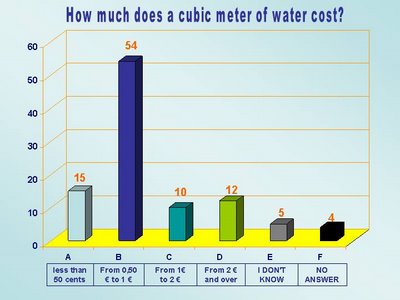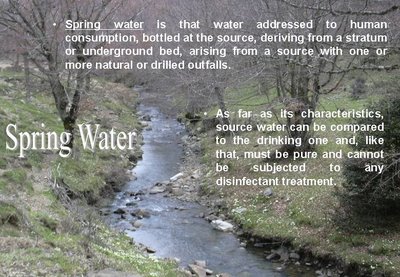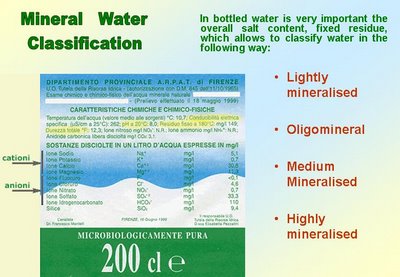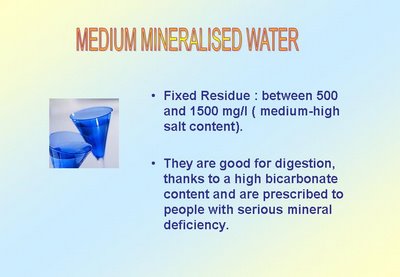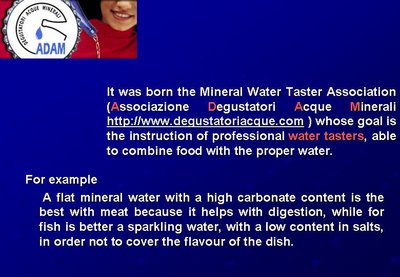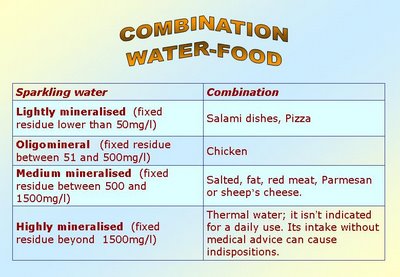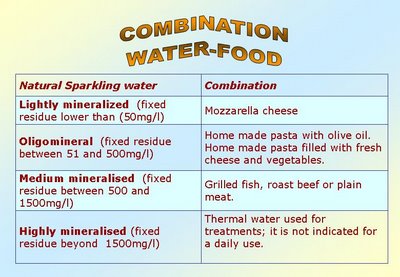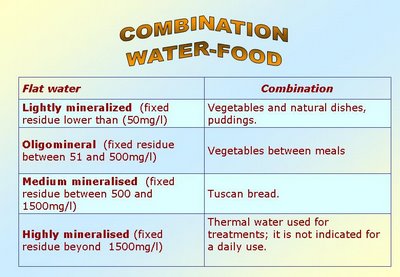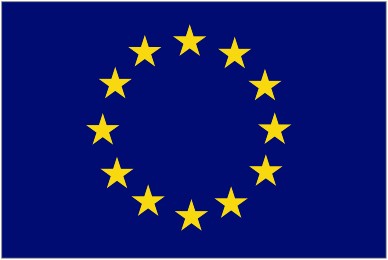Tuesday, February 10, 2009
Thursday, July 24, 2008
Our official web site and a farewell
http://8lyk-ioann.ioa.sch.gr/bpp/ or
http://theblueplanetproject.50webs.com/ (mirror site)
Our project have been implemented successfully. This is the end of our project. But our friendship built all these years keeps on! We hope we 'll meet again in the future. Good luck to all!
Farewell
Stergios Nastopoulos, Angela Stoukidou, Maria Tsougla, Maria Andreadaki, Martha Pappa, Georgia Tamvakou, Eugenia Benekou, Eleni Roidi, Ekaterini Santamouri and Panos Giakis (School Headmaster) from the Greek team.
Anna Maria Bevacqua, Anna Taddeo, Giovanna Di Lemma, Maria Paola Ribaudo, Cuccio C., Ganci V., Demma G., Mulè E., Perricone B., Fogazza L., Spatafora T., Tulumello C., Guido Gambino and Antonino Ricobonno (School Headmasters) from the Italian team.
Ana Vorovenci (School Headmaster), Maria Vlaicu, Domnica Pestritu, Ion Radescu and Nicolae Popescu from the Romanian team of Rucar.
Marius Cocut and Gabriela Irimia from the Romanian School from Neamt.
Erik Ordell, Jeanina Karrstrom (School headmaster), Lars Sandgren, Jenny Hermansson, Margit Karlsson, Anette Schreiber, Christina Granqvist, Ulla Carin Dahl-Rolfö and Lars Kristensson from the Swedish team.
Wednesday, July 23, 2008
Friday, June 16, 2006
Project Activities Report
The experience done in this three years of cooperation in the Comenius project “The Blue Planet” has been educational and formative, enriching both the teachers and the students of each participating school, at a cultural and social level, creating an occasion of integration and growth in a European perspective.
The European School Partners involved in the experience are:
Coordinating school:
“Istituto di Istruzione Superiore “Ugo Mursia” Carini- Italia
European school partners:
“Grupul Scolar Forestier” Rucar - Romania
“8° Eniaio Lykeio Ioanninon” Ioannina, Epirus- Greece
Transnational mobility
Project meeting in Ioannina, Greece
Project meeting in Carini, Italy
The project meeting in Greece that occurred on 27th, 28th and 29th March 2006 can be considered a crucial moment in the reorganization of the activities, after the changes occurred, due to the reduction of the partnership, for the absence of the Swedish team. During the meeting the students presented the material elaborated, with an important section in which the questionnaire on the domestic use of water and its results were presented to the partners. The meeting developed an informative-theoretical and practical approach and a naturalistic section, with attention to the theme of the “Eutrophication” of the lake of Ioannina and the difficulties to solve it, including a practical section of experimentation in loco through the use of chemicals. There were also visits to natural sites, as the river bridge “Theogefyro” of the Kalamas River and the wetlands of Lefkada, with emphasis on the sea and the naval tradition of the place. Notable the visit to the Island of Scorpios. An Important objective of the project was to show the dances and the traditions of the Epirus, the Greek history and legends such as the legend of Ali-Pasha and Kira Frossini.
The meeting focalised the attention of the Municipal authority, of the local radio and press and of local institutions, with the participation of the administrators of Education and the Prefect of Ioannina. Moreover it has arisen the attention and the cooperation of the Municipality of Zitsa and the Monastic Committee of Prophet Elias’Monastery of Zitsa. The municipality of Lefkada helped to give the information on the wetlands of the island.
The participants acquired information about the aspects of local life, food and culture, thus creating a more personal link among teachers and students, who have always had a central role in the project meeting activities. Especially for the presence of some Italian students that participated to the meeting, hosted by Greek families.
The project meeting in Italy occurred from 8th to 10th May and can be considered the final act of three fruitful years of cooperation and activities, an occasion to summarize the work done and to be done to conclude the project.
The meeting has included moments of presentation of the material prepared by the Italian students, with the guide of the teachers and moments of reflection on the project’s follow up. Moreover there were visits to places of naturalistic importance, such as the visit to the Reserve of Isola delle Femmine and of Capo Gallo organized by the Capitaneria di Porto of Palermo and visitf to Segesta, Erice and Palermo with its marvellous markets and fountains.
It’s worth to underline the relevant role that the students have assumed both during the presentation of the material at school and also in the moment of recreation with the performance of a show, including music and dances. Moreover the students of our Hotel and Management school prepared delicious dishes of the Sicilian cooking tradition for our guests. The meeting has focalized the participation of the students’parents and the local community, in general with the interview done by the local tv, that put a further emphasis on the importance of the thematic concerning water and the water resources, and the intervention of the Capitaneria di Porto, as an official authority.
In conclusion the partners agreed on the positive development and implementation of the project, suggesting the possibility of a CDROM and a DVD as the final products of the cooperation among our schools.
LOCAL ACTIVITIES
o Didactic development of the project theme in the different school subjects and integration in the curriculum in each participating school ;
o Researches on the scientific and literary aspects concerning the theme, with text analysis of literary passages and study of socio-cultural aspects of the water;
o Implementation of the TIC and of communication on line thanks to the Web Magazine, the Web sites, promoted by the Greek Partners;
o Socialization of the material produced during the meetings at school and through the internet, publication of the photografic dossier in the school websites;
o Visits to places of particular naturalistic relevance relating to the project theme, with the students’ involvement ;
o Questionnaire on the domestic use of the water and statistics of the results;
o Partecipation to the XVI Week of the scientific and technological Culture and socializzation of the material of the Comenius Project The Blue Planet at the Liceo Scientifico Cannizzaro of Palermo
Material produced both jointly and separately
A collection of CDs, prepared by the students in each school on the theme and shared during the meetings among the partners;
A video presenting the most relevant activities of the meeting, produced by the Greek partner;
Panels with pictures and drawings related to the project theme
Impact of the project
On methodology
Motivation to work in group and to cooperate
- Motivation to use the English language as a real means of communication
- Intercultural vision of a theme of mutual interest
- Desire to meet and know new school experiences and European partners
- Consolidation of the use of tic
- Interdisciplinary approach to the school subjects
On the Local community
- Interest for the school activities
- Integration of the school to the territory
- Motivation to understand the necessity to preserve and respect the environment
- Social engagement of the local community
Dissemination of the material
The dissemination of the material has been done at a local and a wider level:
At a local level through the socialization of the material produced inside the school and local community, also through the local information channels.
At a wider level the material concerning the project has been disseminated in the internet, through the Gold system and the EST (European shared treasure) in Italy and the communication links on line run by the Greek partner, namely, through the web magazine: www.webzinemaker/blueplanet, and the site theblueplanetproject.blogspot.com, that are registering many visitors per day by teachers and people interested in material on water. Moreover we can visit the schools’websites in Italy and Greece, that are http:8lyk-ioann.ioa.sch.gr/bpp and www.iismursia.it
Collaboration among the partners
As distribution of work and a mutual cooperation are two essential elements in the partnership, each partner has contributed as much as possible to reach the final objectives, helping according to one’s abilities and capabilities. The activities have given the opportunity to exchange material and methodological suggestions, indispensable in our educational role. We have succeeded in involving the students and motivating them to be more cooperative, to widen the subject, to use the TIC and the English language to communicate, encouraging a reciprocal exchange among students of different schools; so that during this last year the mobility of the students has increased also to give them the opportunity to know different social and cultural contexts and to feel a deeper European spirit .
Final Product
As for the final products we agreed on the presentation of two different work: a CDROM of the material produced by the schools in this three year of cooperation by the Italian School and a DVD including the best moments of the Meetings by the Greek school.
Evaluation of the results
Evaluative Techniques
Round table with discussions and debates on the project management in each school with students and teachers;
Tests to check the students’ awareness, motivation, knowledge…..on the theme;
Involvement of as many students, teachers and local exponents as possible;
A constant interaction between the theme of the project and the school curriculum and activities, in a multidisciplinary perspective;
A periodical account of the activities by the partners;
CONCLUSION
The results of the activities carried out in the course of this three years of cooperation are quite satisfying, both at a didactic level and as concerns the cooperation among the partners. An interesting bulk of material has been produced and disseminated, moreover there has been a fair distribution of the role among the schools and the main obstacles concerning communication have been overcome.
As all the partners insisted importance has been given to the involvement of the students for more practical activities: drawings and researches, collection of material in the foreign language and so on. Moreover the project has become a local event with the involvement of the local community and the official authorities.
We are firmly convinced that the project has had an impact not only at a school level, on methodology and cultural aspects, but also in the local community life: administrators, politicians, the students’ families have been involved in the project meetings, thus creating a moment of aggregation and socialization among different school realities and different countries.
It’s worth to underline the active role that the students have played during the meetings, as the project is a moment in the students’ growth.
In conclusion, the experience has been productive and fruitful as a life and teaching experience. Therefore, we intend to strengthen and intensify our friendship and school and social engagement, continuing our sincere and intense cooperation in the course of the future years.
Our aim has been to encourage our students’ civil and human growth, in the attempt to relate the school to the local community and to a wider European perspective and we think to have been successful.








